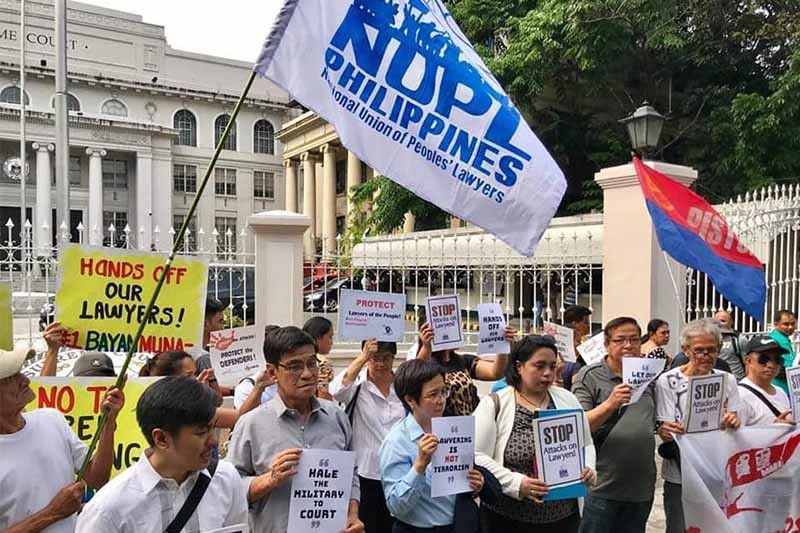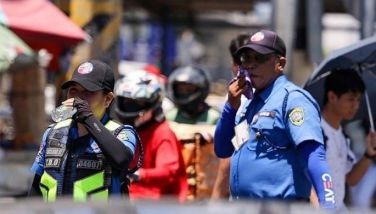Appeals court rejects NUPL plea for protection order vs perceived state harassment

MANILA, Philippines — The Court of Appeals rejected the National Union of Peoples’ Lawyers plea for temporary protection from perceived harassment of state agents.
The appellate court’s Special Fifteenth Division junked the National Union of Peoples’ Lawyers plea for temporary protection order (TPO) as it said that there is “no basis” to grant their prayer.
The court pointed out that the NUPL—whose membership spans nationwide— failed to provide a full list of individuals that may benefit from the grant of the relief.
READ: NUPL seeks court protection from 'threats' by state agents
“Furthermore, given their allegations against their police and military authorities, petitioners should have identified an accredited or to-be-accredited person or private institution capable of providing the protection,” the ruling read.
The CA said that the lawyers’ group should have identified “an accredited or to-be-accredited person or private institution” that could provide them protection, since they are alleging threats from state agents.
It also added that the Supreme Court already granted the lawyers’ group plea for writ of amparo and it does not see a need to issue a TPO.
The appellate court stressed that the writ of amparo “serves both preventive and curative purposes.”
“The writ of amparo may serve to prevent a threat from becoming an actual violation against the aggrieved party,” the ruling read.
The NUPL filed a petition for a writ of amparo as they said that their rights to life, liberty and security have been violated by "persistent threats and harassment, and red-tagging," preventing them from carrying out their profession as members of the bar.
Philippine jurisprudence defines red-tagging as “the act of labelling, branding, naming and accusing individuals and/or organizations of being left-leaning, subversives, communists or terrorists (used as) a strategy... by State agents, particularly law enforcement agencies and the military, against those perceived to be ‘threats’ or ‘enemies of the State.’”
EXPLAINER: Duterte’s red-tagging endangers activists – militant groups
In their petition, the lawyers’ group asked the court to issue a writ of habeas data to compel the government to “produce and, if necessary, to update and rectify, or to suppress and destroy, data, information, and files in their possession under their control or contained in their data base which relate to or concern Petitioners.”
The NUPL named President Rodrigo Duterte and his top security and military officials, including National Security Adviser Hermogenes Esperon Jr. and Defense Secretary Delfin Lorenzana as respondents.
Associate Justice Pedro Corales penned the ruling, while concurring are Associate Justices Stephen Cruz and Germano Francisco Legaspi.
- Latest
- Trending
































